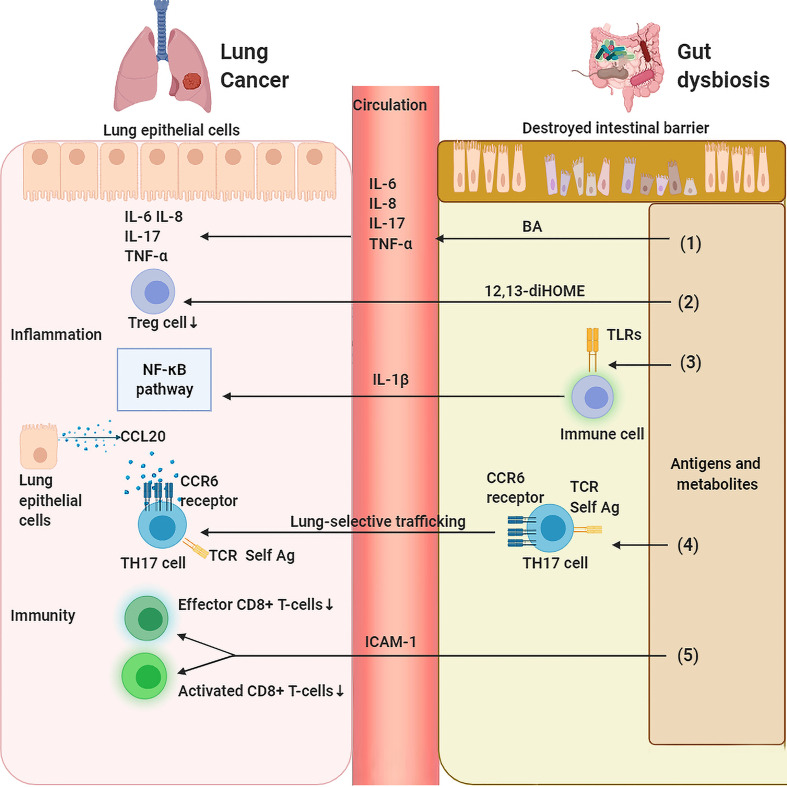Figure 2.
Gut dysbiosis regulates lung inflammation and immunity. (1) Gut dysbiosis causes damage to the intestinal mucosal barrier, invading gut bacteria and metabolites affect the host’s inflammation and immunity locally and systematically which in turn leads to the carcinogensis of lung cancer. Bile acid (BA) stimulates inflammatory markers such as IL-1β、IL-6 and IL-8 in the lung. (2) 12,13-diHOME decreases the number of regulatory T (Treg) cells in the lungs resulting in a reduced anti-inflammatory effect. (3) Bacteria-derived antigens activates TLR4 in the intestine immune cells, which increases the level of IL-1β in peripheral circulation that activates NF-κB pathway, leading to pulmonary inflammation. (4) SFB-induced gut Th17 cells are preferentially recruited to lung due to robust expression in the lung of CCL20. (5) Gut dysbiosis leads to a decrease in the expression of ICAM-1, which decreases the number of activated and effective CD8+ T cells in tumors.

